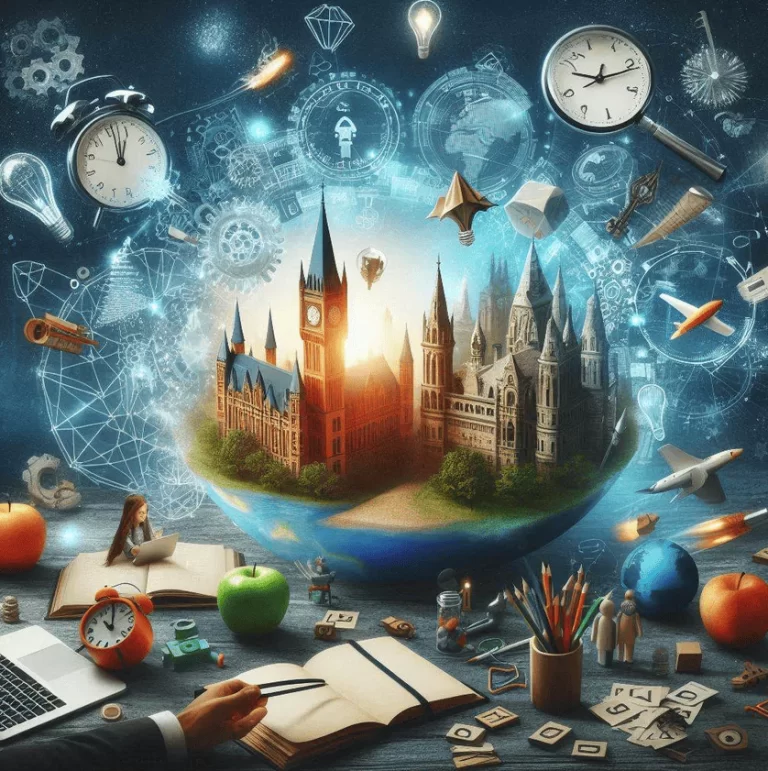
Great Reskilling As the global economy transforms at an unprecedented pace, individuals, industries, and governments face the imperative of adapting to new realities. At the forefront of this transformation is the Great Reskilling, a monumental shift in how society approaches education, training, and workforce development. This concept transcends traditional paradigms, emphasizing the urgent need for individuals to acquire new competencies and reimagine their professional trajectories in a world dominated by technological advancements and evolving market demands.
The Catalyst for the Great Reskilling
Technological Disruption
Technology has always been a double-edged sword—fueling innovation while rendering some skills obsolete. The current wave of digital transformation, driven by artificial intelligence (AI), automation, and big data, has accelerated this phenomenon. Jobs that were once secure have either disappeared or evolved beyond recognition. In response, the Great Reskilling emerges as a solution, equipping individuals with the tools to thrive in an era where adaptability is key.
Economic Shifts
Globalization, climate change, and the rise of the gig economy have further reshaped the employment landscape. Traditional career ladders are giving way to portfolio careers, where individuals piece together diverse roles and projects. The Great Reskilling ensures that workers remain relevant, versatile, and competitive in this fluid environment.
Key Components of the Great Reskilling
Lifelong Learning as a Cornerstone
The days of viewing education as a finite endeavor are long gone. In the context of the Great Reskilling, lifelong learning takes center stage. This philosophy promotes continuous skill acquisition, enabling individuals to stay ahead of industry trends and adapt to emerging challenges.
Online platforms, micro-credentialing, and modular learning have democratized access to education. Workers can now upskill or reskill from anywhere in the world, often at their own pace. This shift not only empowers individuals but also aligns educational outcomes with the ever-changing demands of the job market.
Collaboration Between Stakeholders
The success of the Great Reskilling hinges on collaboration between various stakeholders:
- Governments: Policies and funding initiatives are critical to creating accessible and equitable training opportunities.
- Employers: Companies play a vital role in fostering a culture of learning, offering on-the-job training, and partnering with educational institutions.
- Educational Institutions: Schools, universities, and vocational centers must redesign curricula to prioritize skills over rote knowledge.
Focus on Emerging Skills
The Great Reskilling prioritizes areas of growth, including:
- Digital Proficiency: Coding, data analysis, and digital marketing are becoming universal requirements across industries.
- Soft Skills: Emotional intelligence, adaptability, and communication are equally critical in navigating complex professional environments.
- Green Skills: As sustainability gains prominence, expertise in renewable energy, circular economy practices, and environmental management is increasingly valuable.
Industries at the Forefront of the Great Reskilling
Technology
The tech industry exemplifies both the challenges and opportunities of reskilling. On one hand, rapid innovation creates skill shortages. On the other, this same innovation drives the creation of roles in cybersecurity, cloud computing, and AI ethics. The Great Reskilling within this sector ensures that talent pipelines are consistently replenished with qualified professionals.
Healthcare
As the global population ages and pandemics challenge traditional healthcare systems, the demand for specialized skills grows. Telemedicine, medical coding, and biotech advancements are redefining the skills required in this field. The Great Reskilling in healthcare is crucial for preparing workers to meet these new demands.
Renewable Energy
The transition to sustainable energy sources has created a demand for workers skilled in areas such as solar panel installation, wind turbine maintenance, and energy-efficient design. The Great Reskilling supports this shift, ensuring that workers from traditional energy sectors can transition to greener roles.
Challenges and Barriers to the Great Reskilling
Economic Inequality
While reskilling initiatives have gained traction, economic disparities continue to hinder access for many. Marginalized communities often face barriers such as lack of digital access, high training costs, and limited availability of programs tailored to their needs. Addressing these issues is critical to ensuring that the Great Reskilling is inclusive and equitable.
Resistance to Change
Human nature often resists change, especially when it involves stepping out of comfort zones. Many workers view reskilling as daunting, particularly if they lack confidence in their ability to learn new technologies. Employers and educators must adopt empathetic approaches to alleviate these fears and make the transition less intimidating.
Keeping Pace with Change
The rapid evolution of industries means that some skills acquired during reskilling programs may become outdated quickly. Designing curricula that emphasize adaptability and foundational competencies can mitigate this risk, ensuring that the Great Reskilling produces workers who can pivot as needed.
Strategies to Accelerate the Great Reskilling
Leveraging Technology
Technology is not only a disruptor but also a powerful enabler of the Great Reskilling. Virtual reality (VR) simulations, AI-driven personalized learning, and gamification have made training more engaging and effective. These innovations provide immersive experiences that accelerate skill acquisition.
Employer-Led Initiatives
Organizations that invest in their workforce reap long-term benefits, including higher employee retention and enhanced productivity. Companies like Amazon and IBM have pioneered reskilling programs, offering workers pathways to roles in high-demand fields. These employer-led initiatives are pivotal to the success of the Great Reskilling.
Public Policy and Investment
Governments can play a transformative role by funding reskilling programs, incentivizing employers to participate, and ensuring that underserved populations are prioritized. Policies that integrate the Great Reskilling into broader economic strategies can drive systemic change.
Success Stories from the Great Reskilling
Individual Transformations
The Great Reskilling has empowered countless individuals to reinvent their careers. Take the example of a factory worker who transitioned into a role as a robotics technician after completing a short-term certification program. Such stories underscore the potential of reskilling to unlock new opportunities.
Industry-Wide Impact
In industries like manufacturing, reskilling initiatives have minimized the disruptive effects of automation. Workers trained to operate and maintain advanced machinery have not only retained employment but also contributed to increased efficiency and innovation within their organizations.
The Future of the Great Reskilling
The Great Reskilling is not a one-time initiative but an ongoing process that will shape the workforce for decades to come. As automation and AI continue to evolve, the demand for adaptable, skilled workers will only increase. The integration of learning into everyday life—via bite-sized modules, just-in-time training, and mentorship networks—will redefine how people approach career development.
Furthermore, the Great Reskilling will expand beyond technical competencies. Emotional resilience, cultural intelligence, and ethical decision-making will become central to training programs, preparing individuals to navigate an increasingly interconnected and complex world.
Conclusion
The Great Reskilling represents a pivotal moment in history—a chance to reimagine learning, empower workers, and drive economic progress. By embracing this new era of education, society can unlock human potential and ensure that no one is left behind in the march toward progress. The road ahead is challenging, but the rewards of a well-prepared, dynamic workforce are immeasurable. Together, individuals, institutions, and industries can create a future where the Great Reskilling is not just a necessity but a celebrated hallmark of human adaptability and ingenuity.



